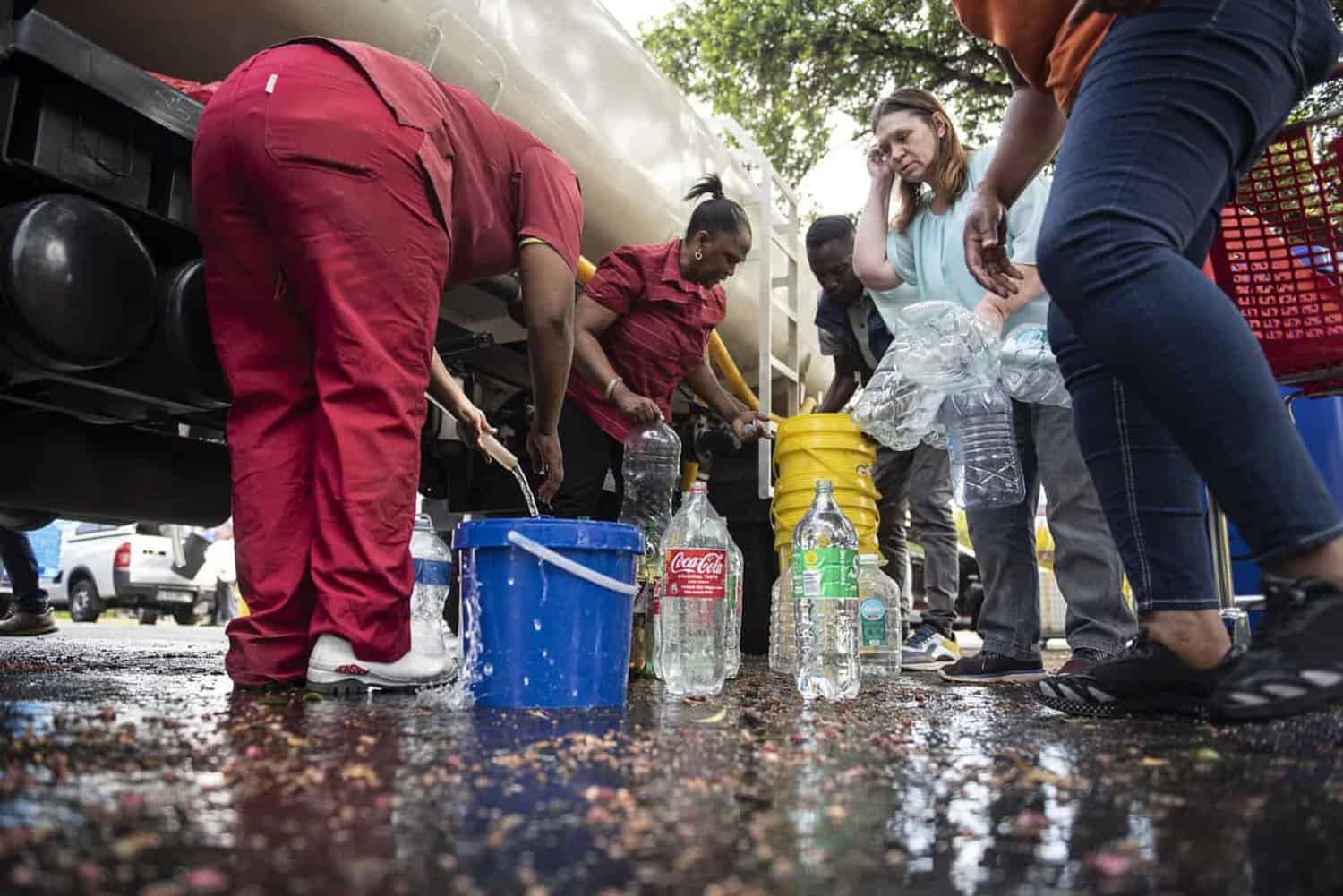Water tankers may be a short-term fix but if it comes at the cost of maintenance, SA could see a catastrophic collapse.

The local government elections are a year away, and the band-aids to “fix” municipalities are already being administered far and wide.
Among these was a call this week by water minister Pemmy Majodina for municipalities to ditch local contractors and buy their own water tankers.
Her argument that this will give the government more control over distribution is compelling in the face of clear sabotage and corruption by water tanker mafias, which have even President Cyril Ramaphosa concerned.
But, like much of the minister’s plans, it seems to lack deeper thought and is the default, quickest populist solution to the problem.
ALSO READ: A VIEW OF THE WEEK: Lesufi’s words won’t save Joburg from becoming a squatter camp
The big bet
She applauded the City of Johannesburg for buying 20 of their own water tankers and encouraged other municipalities across the country to do the same.
But Rome was never built with 20 bricks, and neither will Joburg’s water crisis begin to be resolved with 20 tankers.
There are over 130 wards in the city, the majority of which consist of multiple suburbs or areas. On any given week, dozens of suburbs are affected by water outages and reservoirs running critically low.
This Monday alone started with six reservoirs and towers nearly running empty, putting as many as 42 major suburbs and their numerous extensions at risk. That is more than 86 000 properties and 216 000 residents. All these areas and citizens would need water tankers, and 20 tankers will hardly make a drop in the ocean of need.
Shifting the strategy to water tankers, whether contracted or City-owned, is short-sighted and a recipe for disaster, if not accompanied by extensive infrastructure system management and maintenance.
Putting all your chips in on the bet may ease frustrations and win you votes in next year’s polls, but fast forward to 2027, and we run the risk of infrastructure catastrophically collapsing and taps running dry for weeks at a time. It would make the load shedding crisis of the last decade look like a light flicker.
ALSO READ: A VIEW OF THE WEEK: ANC ‘on the brink of collapse’ but don’t get distracted
Tanks? With what money?
While even the minister acknowledged that tankers cannot be a long-term solution, limited budgets mean that priorities have to be given somewhere, and an investment in tankers can make it harder to move away from using them as a crutch when maintenance should be its priority.
Johannesburg Water received the second-largest budget allocation, R5.6 billion over three years, in May’s City of Johannesburg budget speech. Tanker services will now have to compete for this money with infrastructure maintenance and planned investment in new sewer connections to informal settlements and townships.
The situation becomes worse when you factor in that several municipalities across the country, including Johannesburg, are billions of Rands in debt.
The failure to provide water is a basic human right and against the constitution. It has caused several protests across the country over the last few months and is only escalating.
Buying a few tankers may not hold the tsunami of anger and disaster that could follow.
NOW READ: A VIEW OF THE WEEK: When will the ground fall beneath us?






